





Canterbury Waitaha


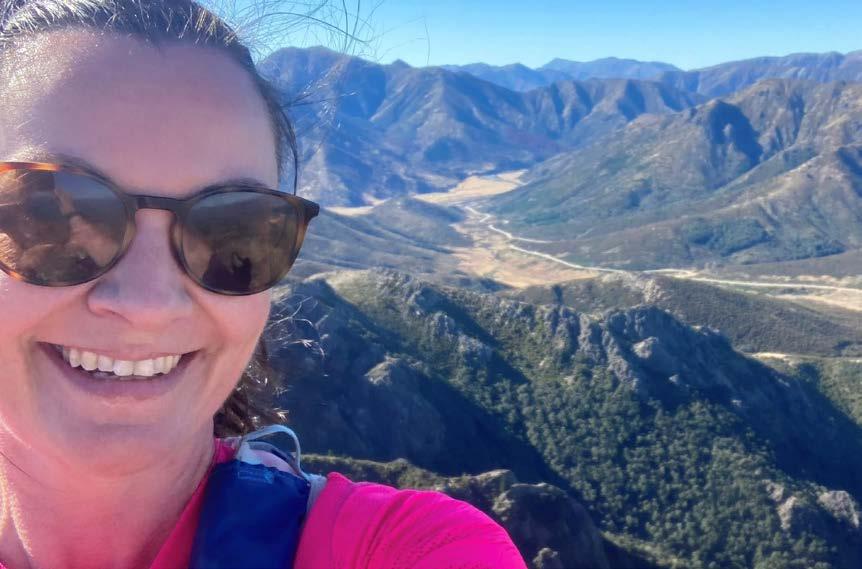

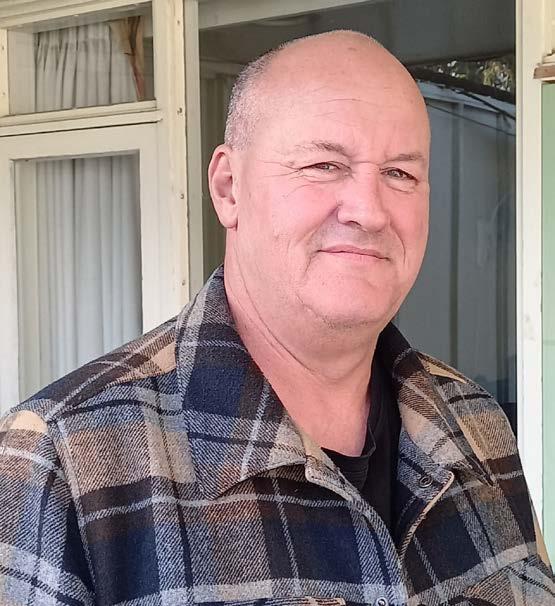

Kupu Arataki – Introduction... pg 3-6
Ā mātou tāngata – Our people
› Widening scope of practice will benefit patients... pg 7
› Thirteen years leading health communications in Canterbury... pg 8-9
› Physiologist off to Vienna in bid for Olympics marathon spot... pg 9
› One minute with… Mike Manahi, Pūkenga Atawhai (Māori Mental Health Worker), Te Korowai Atawhai, Hillmorton... pg 10
Whakamihi – Bouquets... pg 11–13
Ā mātou korero – Our stories
› Tramping club with hospital connections celebrates 50 years... pg 14–15
› Whanaungatanga key to successful kaumātua Better Breathing sessions at Rehua Marae ... pg 16-17
› Unlocking potential: Kete for integrating pharmacists into general practice teams pg 17
Pānui – Notices... pg 18–20

With the Waitaha Canterbury weather beginning to cool down, Christchurch Hospital Volunteers Inc are relaunching their Jammies for Juniors program.
Volunteer Coordinator Louise Hoban-Watson says the team is seeking donations of new pyjamas in children's sizes 1 to 16.
“These cosy PJ sets are a lifeline for our young patients, providing them with a sense of normality and comfort during their hospital stay. Whether it's after a seizure, an accident or an unexpected visit, having a fresh pair of PJs can make all the difference,” Louise says.
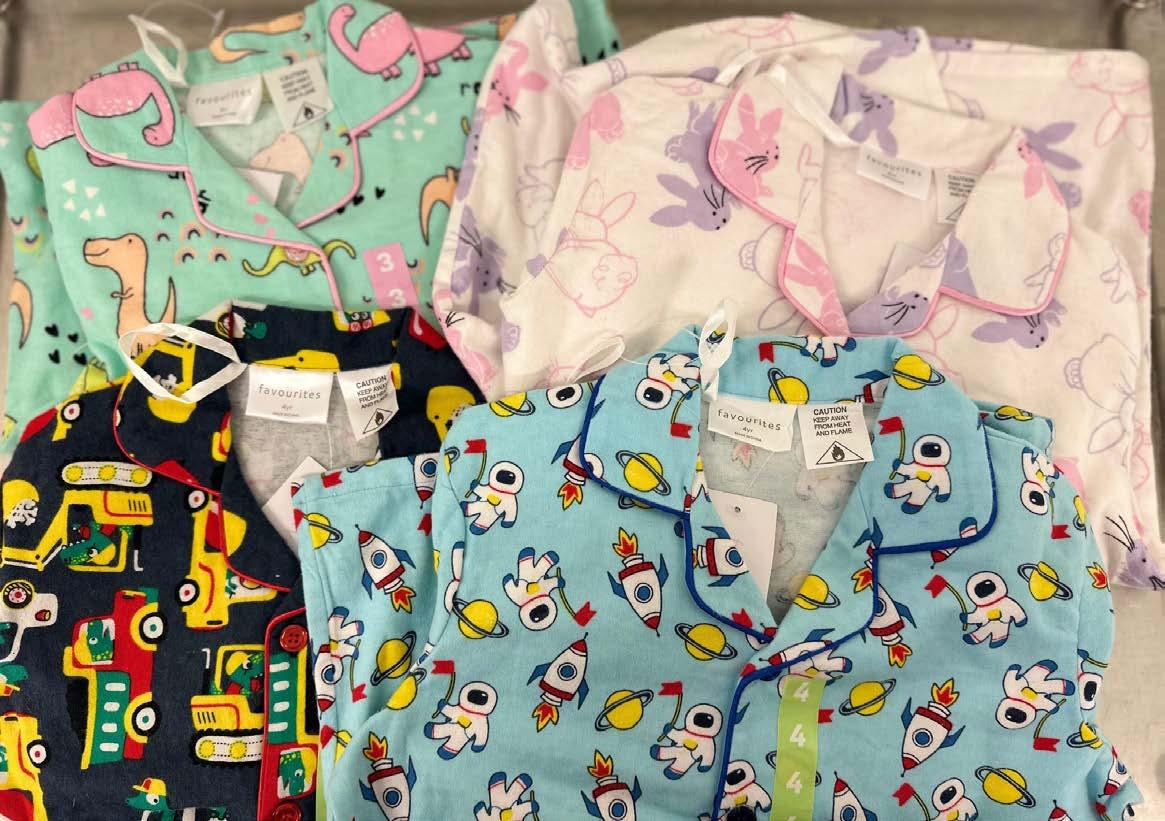
To reduce the risk of infection, only new flannelette pyjamas will be accepted. All pyjamas must meet the New Zealand product safety standards and carry the fire safety certification (look for the ‘caution keep away from heat’ label). Pyjamas must also have buttons down the front.
Some suggested retailers include Farmers, The Warehouse, Postie Plus, Kmart, Cotton On, Bed Bath & Beyond and Peter Alexander, but donations from any reputable source are welcome.
A reminder that free flu vaccinations for Health New Zealand | Te Whatu Ora staff are now available.
Vaccination clinics for kaimahi are being held at Ashburton, Burwood, Christchurch, Hillmorton and The Princess Margaret Hospitals and West Coast.
For details and updates on clinics including locations and times, kaimahi can check the internal staff email, or on PRISM.
Donated pyjamas must be dropped off at Christchurch Hospital, either at the main Reception desk, the Volunteers' Office or to a WayFinder volunteer (they wear a blue ‘Can I help you?’ vest).
“Some pyjamas have already been received and it’s so wonderful to have kind people looking out for our little ones,” Louise says.


Our second Ngātahitanga Pulse Survey for Health New Zealand | Te Whatu Ora staff is open until Wednesday 24 April.
So far, we have received more than 10,000 responses across the motu – which is a great start. It takes less than five minutes to fill in, is completely confidential, and is open to all Health NZ kaimahi. This includes casual staff and contractors, and volunteers.
You can access the survey through an email link sent to staff, or alternatively by using a QR code or filling in a paper survey at your location. Ask your manager if you need a printed survey to complete.
If you need more information or support, talk with your manager in the first instance, or visit the Pulse Survey Information Hub on Te Haerenga.
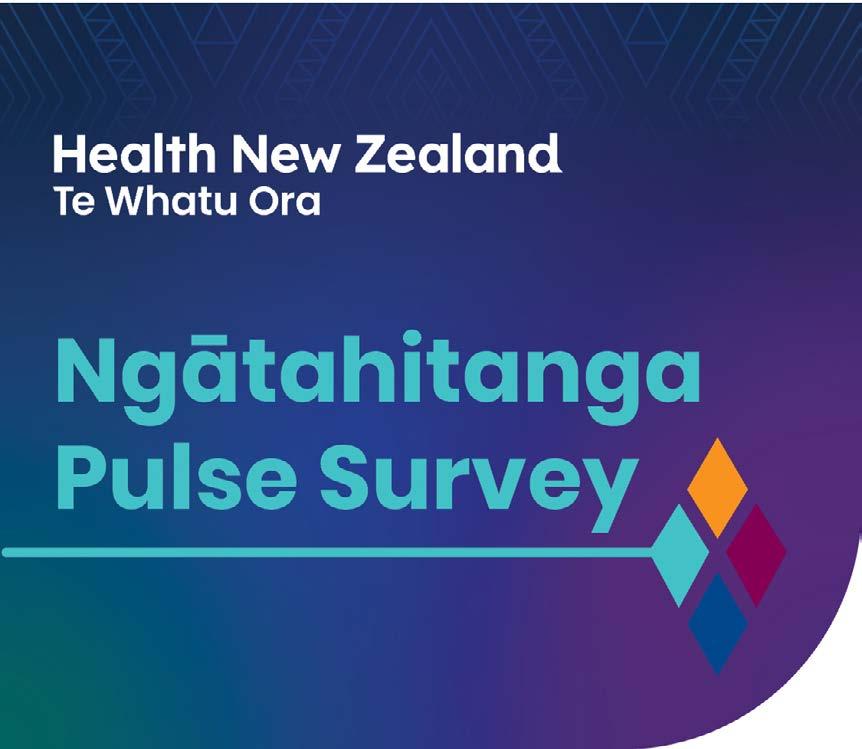


World Immunisation Week, coming up in the last week of April, aims to highlight the collective action needed to promote the use of vaccines to protect people of all ages against disease. This week is about celebrating the importance of immunisation – allowing children, adults, whānau and communities to live happier, healthier lives.
› Immunisation saves lives. Immunisation stops people from passing diseases to their whānau, particularly to those who may not have strong immune systems.

› We desperately need higher rates of immunisation to help stop children and adults from getting really sick and having to go to hospital this winter.
› Vaccines on the National Immunisation Schedule are free for all children and young people under 18 in Aotearoa New Zealand. It does not matter what their visa or citizenship status is.
› Flu vaccines are free for many people, and the latest Covid vaccine is free for all eligible people from 6 months of age.
› No matter where you live in Aotearoa New Zealand, we are working hard to improve equitable access to funded immunisation.
› Together we are working toward achieving our national health targets and protecting our tamariki from preventable diseases with 95% of children fully immunised at 24 months of age.
Thank you to everyone who is involved in immunisation efforts. World Immunisation Week is also an opportunity to recognise those people who have already been immunised and acknowledge the dedication and work led by vaccinators and the healthcare sector. We thank you for your hard work and support.
Find out more about immunisation and watch a video answering common questions here. Information about immunisation is also available on the Health New Zealand | Te Whatu Ora website: Immunisations | Health Information and Services

A new funding package from Health New Zealand | Te Whatu Ora will help general practices to more easily contact parents and caregivers of tamariki for their six-week immunisations.
Health NZ National Director Nick Chamberlain says the funding of $4.6 million will help alleviate some of the administrative pressure currently being experienced by general practice due to workforce constraints and enrolment capacity.
“One of the most effective health interventions we can do is get our tamariki immunised, however, childhood immunisation rates in Aotearoa are currently below target at 81% for 24 month olds, and we are working with urgency to improve this.
“Proactively reaching out to parents and caregivers through enrolment at birth and before their pēpi are due for immunisations can help ensure that pēpi receive their immunisations on time. There are also important medical checks that take place at six weeks, so we recommend that pēpi get their immunisations and medical check in the same visit and primary care is best placed to coordinate this.
“Our key goal is to increase immunisation rates for tamariki, and the important pre-call, recall and referral work that primary care does is an essential part of this. It’s important for parents and caregivers to know that if tamariki have missed their immunisations, they can catch up,” says Dr Chamberlain.
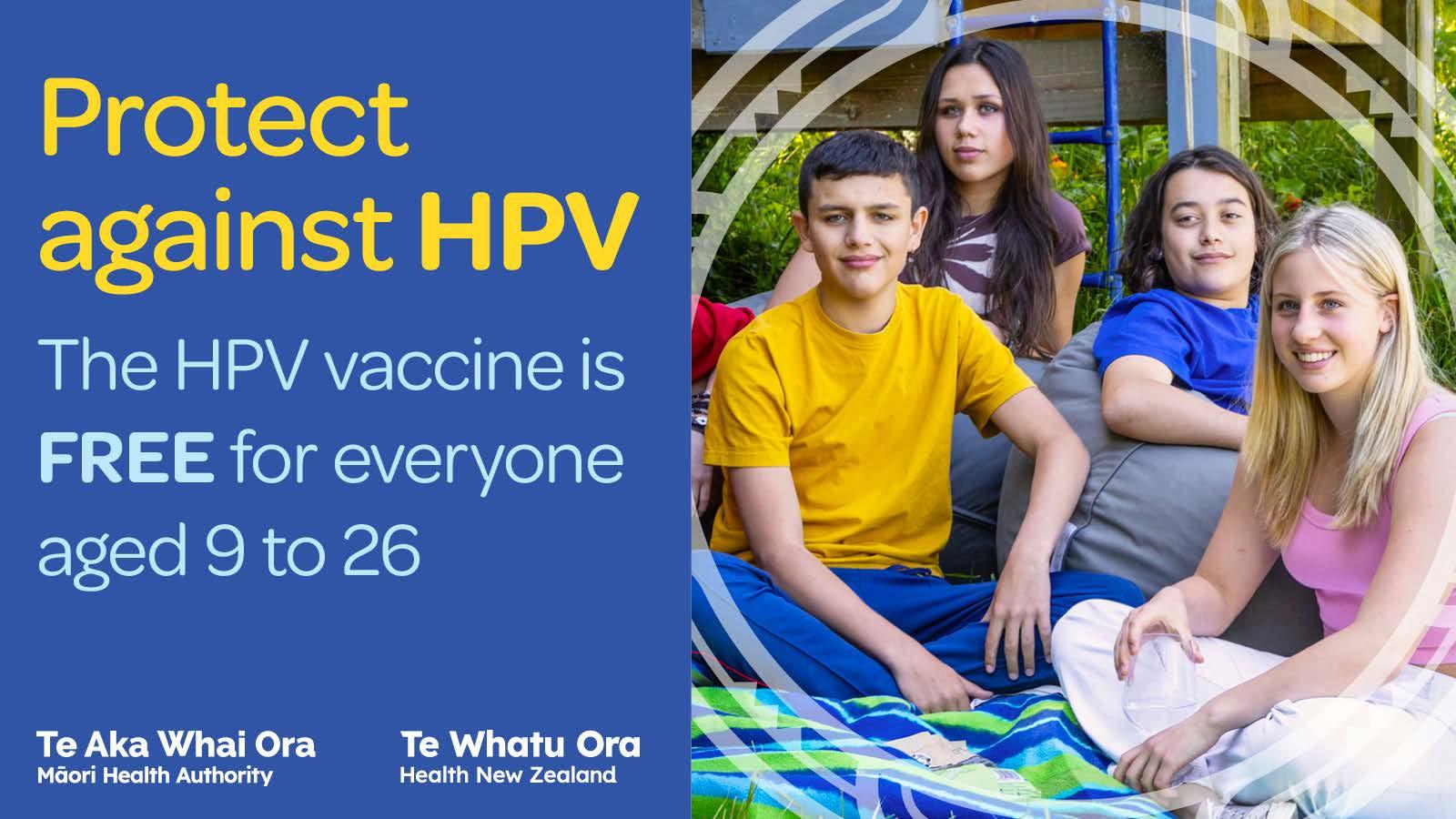
Completing Nurse Practitioner (NP) training will help Clinical Nurse Specialist (CNS) Sally Fitzgerald to provide a new level of holistic care for the patients she sees.
Sally has been a CNS in the Acute Pain Management Service at Christchurch Hospital for the last decade.
In 2022 Sally was involved in setting up the Transitional/Complex pain service. This supports complex patients transitioning from hospital to the community, with a focus on the prevention of chronic pain and disability.
She completed her Masters degree in Nursing in 2014, her prescribing diploma in 2020, and is undertaking NP training this year.
“Our patients come from a very diverse population represented across the lifespan. Many of them have a degree of complexity; their pain may be influenced by other medical conditions as well as psychosocial factors,” Sally says.
This area of healthcare is ideally positioned for a NP to practice autonomously, allowing her to have a generalised approach to their care, encompassing all the aspects of their condition.
“A CNS works within a defined specialist area of practice, like pain management, and works within a specialty team with other health professionals. The NP encompasses an advanced level of diagnostic reasoning and therapeutic knowledge, a broader scope of practice, and the ability to work as an independent practitioner.
“Being an NP will completely change my role within the service and allow me to provide a new standard of care for patients, resulting in better outcomes,” Sally says.
NPs are highly skilled autonomous health practitioners who have advanced education, clinical training and demonstrated competency. They have the legal authority to practice beyond the level of a registered nurse.
Sally says the NP study is “taking over my life completely at the moment” but it is made bearable by the good team she works with and support from her family.

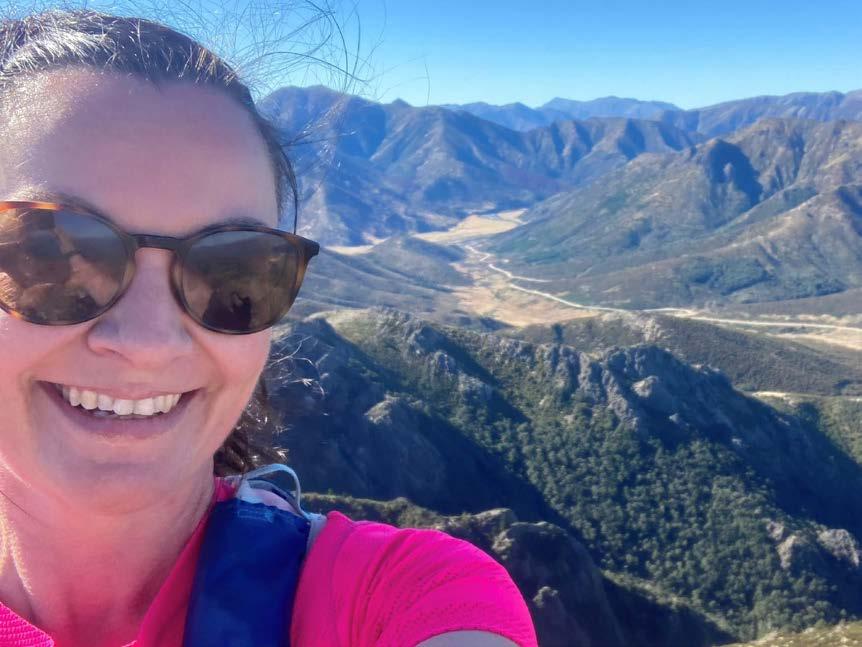
“My focus for 10 years has been pain management and now I am learning everything else. It’s really interesting.”
Earlier this year a significant increase in funded places for the NP Training Programme (NPTP) in 2024 was announced, with 121 places fully funded by Health New Zealand | Te Whatu Ora – a 51.3 per cent increase compared to last year.
The nurse applicants come from across Aotearoa and will join just over 750 NPs already in practice who are delivering healthcare across the sector, improving access and reducing pressure on medical practitioners.
Nurses go through rigorous training before they can even apply to join the training programme. Increasing the numbers of NPs in training is a key initiative of the Health Workforce Plan to grow a highly skilled, sustainable, local workforce.
The NPTP is a national programme funded by Health New Zealand that includes the final year of preparation to become a registered nurse practitioner. Entry to the programme requires registered nurses to have at least three years’ experience and be working at an advanced level in a given area of practice, together with demonstrable leadership skills.
A registered NP has completed a clinical Master’s degree over a minimum four-year period.
This year’s applicants also include 17 Māori nurses and five Pacific nurses. Increasing Māori and Pacific nurse practitioners is a priority for Health New Zealand and crucial for whānau health and wellbeing.

After 13 years of being on-call 24/7, former Canterbury Waitaha Executive Director Communications Karalyn van Deursen signed off from her role last Friday – and is looking forward to some travel, spending time with family and friends, and walking the Port Hills.
It will be a change of pace for Karalyn, who started with the former Canterbury District Health Board in 2011, just 10 days before the 22 February earthquake.
Since then it’s been “a rollercoaster ride” with fires, floods, communicable disease outbreaks, COVID-19 and many more communications challenges in addition to business-as-usual work.
“Natural disasters, the mosque terror attacks, and pandemic were all milestone events that I will never forget. Each was a test of resilience and resourcefulness,” Karalyn says.
But there have been many positive experiences as well. “One of the best days at work was the Dalai Lama’s visit to Christchurch Hospital. I’d been liaising with his officials for weeks, and when the day of his visit arrived, he asked for me to greet him and guide him around the hospital.
“He held, and squeezed, my hand the entire time we walked around the hospital. I’ve never seen so many staff lining all the hospital corridors as they did for a chance to meet His Holiness.
Thousands turned out to meet him. It was a special day for so many, including a group of patients who had been injured in the earthquake and had a private session with him.”

Karalyn says she’s also incredibly proud of the work of the communications team. “We’ve won a number of awards over the years, with the highlight being winning the Public Relations Institute of New Zealand’s In-house team of the year award.
“Another standout was the night Canterbury DHB took out four IPANZ (Institute of Public Administration NZ) awards including a public sector communications and engagement award, and the prestigious Prime Minister’s award for public sector excellence.”
Executive Director of Nursing Becky Hickmott paid tribute to ‘KvD’ saying the organisation and staff were tremendously grateful for her support over the years.
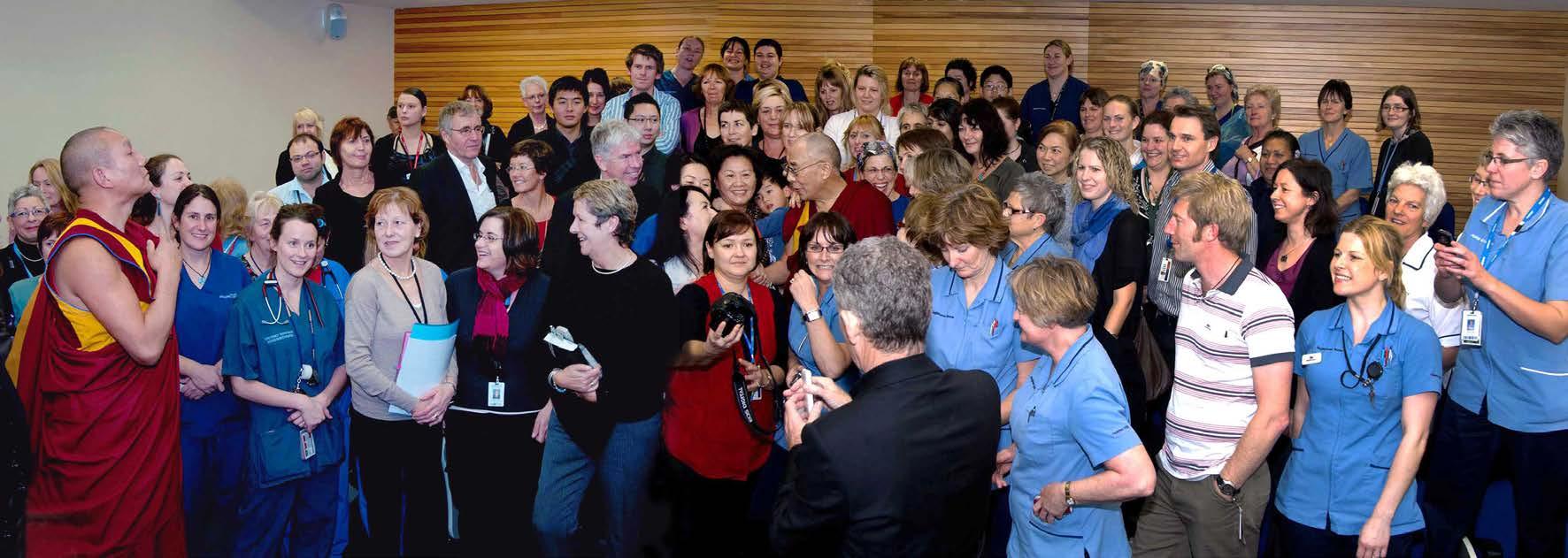
“KvD has been an amazing enabler, and has worked with such passion and care for clinical staff and for the wider organisation.
“Through so many events and crises she has partnered with us, supported us, and always wanted our voice to be heard and carefully considered.
“We’ll miss her understanding, her nuanced approach, her crisis communications and so much else,” Becky says.

For Karalyn, it’s the people she’ll miss. “Canterbury, the West Coast and Te Waipounamu are lucky to have so many passionate and talented staff working hard to improve health outcomes," she says.
“I feel privileged to have worked alongside some of the smartest, kindest and most resilient people in the health sector.”
Clinical Physiologist Cameron Avery is about to swap the laboratory at Christchurch Hospital for the streets of Vienna in a bid to qualify for the marathon at the Paris Olympics.
With the support of his family, friends, the local running community, and Christchurch Hospital colleagues, Cameron is ready to make a historic bid for Olympic qualification.
He faces the daunting challenge of shaving off four minutes from his personal best (2:12:30) – which is going to take a superhuman effort, says Cameron.
Qualification would be “a dream come true” he told 1News in a recent interview.
If successful, he would be the first male New Zealand athlete to qualify for the Paris Olympics marathon.
He competes in Vienna on Sunday 21 April, with the hope that in four months' time he could be Parisbound.
Wishing Cameron the best of luck!
See the full 1News story and interview with Cameron here
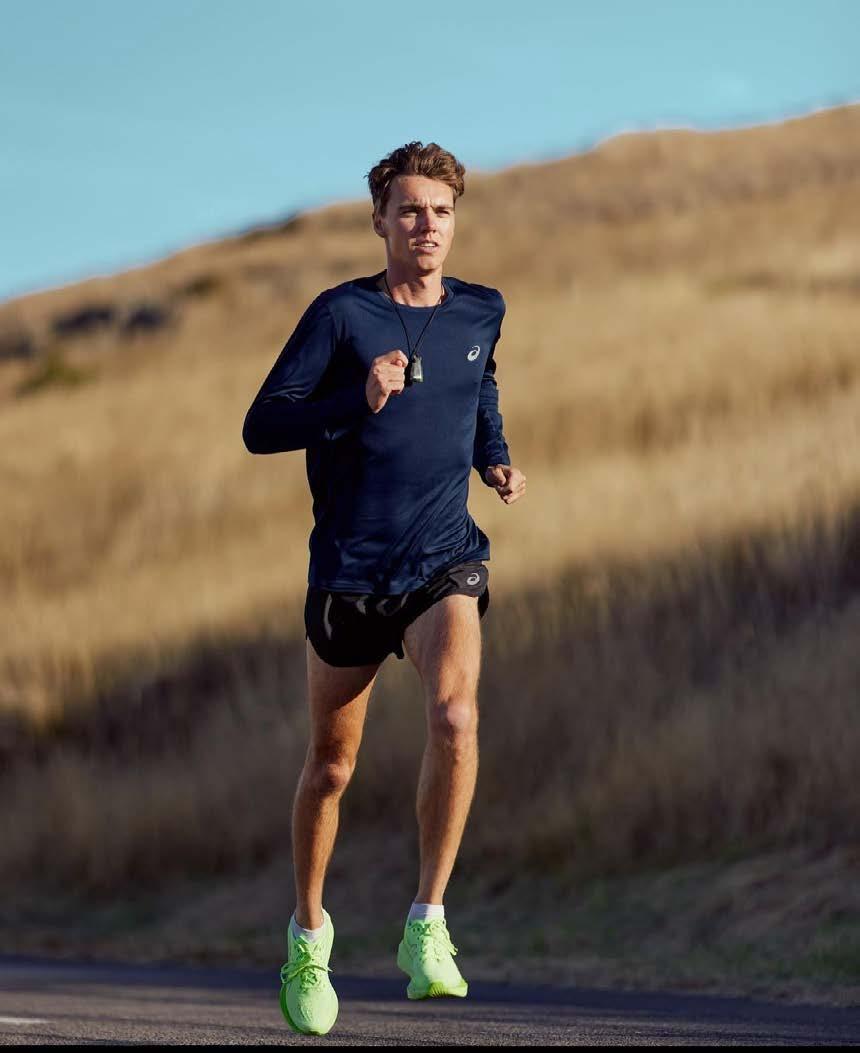

What does your job involve?
My role is a cultural assessor and advisor, however I also run groups which engage takata whaiora (consumers) through Te Ao Māori with learning karakia , waiata, and kai roopu. Building whanaungatanga (relationship/kinship) is imperative when engaging with takata whaiora which has been always the foundation of my mahi. There are many other hui that I attend throughout the forensic community and I love working with my teams who are totally committed to their mahi.
What pathway got you to this job?
Back in the 1990s I lost my brother to suicide. I had no idea what mental health was. I remember the specialist mental health team from North Sector who were amazing with my bro, however life got too hard for him. I was working as a freezing worker when I was told of a job going as a kaiawhina a-rohe in the community working with Kakakura Health Services. This launched me not only to finding my life as Kai Tahu (or Ngāi Tahu Te Iwi) but being educated to mahi with our people. Thanks to Kakakura which put me through the Southern Institute of Technology and Unitec I achieved my Level 4 mental health certificate and my level 7 Graduate Diploma in Not-for-Profit Management. I also completed Te Arotake Manu Korero (assessment pathway) under Te Wananga Aotearoa. From there I started with North Sector in 2006 working with the very team that had worked with our whānau such a privilege for someone like me.
What advice would you give someone keen to enter your field?
Get some experience working in community mental health and an understanding of working alongside takata whaiora and looking at education from a Te Ao Māori lens. And the biggest is the whanaungatanga, the engagement with takata whaiora when they are doing well and when they are not doing so well. When you have built this relationship with the mihi right at the start there is a trust factor that plays a role. Also, saying what you are going to do and then doing it goes a long way.
Who inspires you and why?
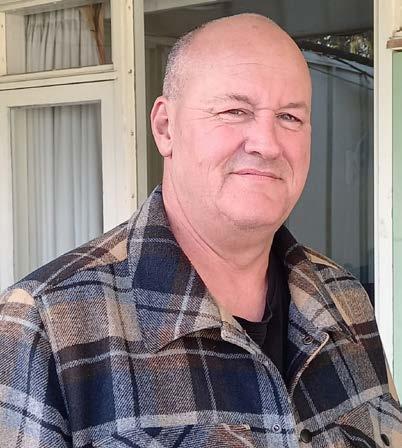
Working with people. I have been doing this mahi now for 24 years and if you don’t have a love for working with all kinds of personalities it could be difficult. Seeing someone move on with their lives after going through a mental health episode is so rewarding. I guess this is what keeps me going.
What do Waitaha Canterbury’s values (Care and respect for others, Integrity in all we do and Responsibility for outcomes) mean to you in your role?
These values are the core when you are working with takata whaiora and whānau. I always reflect back to my brother and others who I’ve seen being taking care of by specialist mental health teams. I’ve seen their dedication.
If you could be anywhere in the world right now where would you be and why?
So many choices, however I think sitting on a beach somewhere for a time would be sweet.
Who would you want to play you if there was a movie made about your life, and why?
Keanu Reeves, he took the red pill lol! Nah, I think he understands humbleness, tragedy and coming back from it and seeing the best in others … and he rides cool motorbikes.
What are some of the ways you and your whānau show their aroha/love for our planet?
Our thoughts go to planting more native trees, only taking what you need when it comes to harvesting kai from the moana, and not littering, keeping it clean.
What are your hobbies/interests outside of work?
Riding and fixing motorbikes, restoring a V8 ute, boating, diving for kai moana, walking, having time with my whānau, travelling.
If you would like to take part in this column or would like to nominate someone please contact Naomi.Gilling@cdhb.health.nz.


Ashburton Hospital
Please thank Dr Robin Page and all the nursing and auxiliary staff for their quick and efficient responses. I was in a lot of pain and their reassurances were very much appreciated. Also please thank the lady on reception (sorry I don't know her name) who was very friendly and kind. It's a 10 out of 10 for everyone from me. As a UK citizen in the country visiting my daughter you all made it a much more pleasant experience whilst I was in so much pain and didn't know what was happening. The triage Nurse in Rakaia was very helpful and empathetic to my situation. Thank you all very much.
General Surgery, Christchurch Hospital
I saw Surgeon Saxon Connor in the General Surgery Clinic. He was fantastic – kind, gentle, supportive - all those words that one hopes to use about a medical professional. He explained everything and was quite pragmatic. So, thank you Saxon and the team.
Emergency Department (ED), Christchurch Hospital
I wish to comment on the great service and treatment my daughter and I had in Emergency Department. We were seen quickly and specifically wish to thank Dr Evan Cameron who listened to us and was very respectful. Thank you again.
Acute Ward, Christchurch Hospital
I’m so impressed for the level of care I’ve received and feel very thankful to live in New Zealand. Every person that worked with me always started with introducing themselves; beautiful, calm and respectful. Thank you.
ED, Christchurch Hospital
I was in ED with chest pains. I would like to thank Dr Seamus Harrington, the nurses, Orderly Beverley and all the staff, including the lovely lady from St John, who took care of me. Thankfully, the chest pains were not cardiac-related. Everybody was friendly and professional, and I always felt well cared for. I fully appreciate that the ED staff work under a lot of pressure and not always with the easiest of clientele, but they were awesome.
ED, Surgical Assessment and Review Area (SARA), Wards B3 and A5, Christchurch Hospital
I was discharged today post-urgent cholecystectomy and just wanted to say that your team made it a much easier experience. I was treated with kindness and respect and was very impressed with the care and services provided to me. I have a whole team of people to thank but some names I remember are Sally from ED, and Lynn, Sarah and Erica from Ward A5, I wish I could remember everyone's names. I appreciate the speed at which your team was able to fit me in for surgery. Thoroughly impressed all round.
Ward 11 and Eve, WellFood, Christchurch Hospital
During my time at Christchurch Hospital in Ward 11 I had the pleasure of having Eve Prasad from WellFood. Eve has the most energetic, bubbly and positive attitude. I wasn’t feeling great during my first few days here and her energy and liveliness brought my mood up, I specifically said to my partner “wait until you meet the food lady, she is so cool and lovely”. After he met her, he said that same thing.
Christchurch Hospital
The staff have been excellent looking after my wife.
George and Martin, Interventional Radiology, Christchurch Hospital
Our son had an interventional procedure in Radiology. We (and in particular our son) were impressed by the level of care and communication the team provided. The humour and friendliness helped keep both of us calm. Thank you to the person who answered all our son’s questions during the procedure itself. He is a sponge so would have enjoyed watching and learning. Our son kept singing all your praises and telling me how lovely you all were. Thankyou George and Martin for your expertise.
Ward B6, Christchurch Hospital
Thank you very much for the very attentive care of my father when he was here. The staff are all amazing, so empathetic and caring.
Ward B6, Christchurch Hospital
All the staff are amazing. My brother has been in and out of the ward for over three months. He has been treated so well, nothing is too much, even when busy. Please pass on to the team who have cared for him so well. His whole family are truly thankful.
Ward B5, Christchurch Hospital
Fantastic facility, friendly and dedicated staff. I’m very proud of what you do here.
Orthopaedics, Christchurch Hospital
My experience after having surgery was wonderful, I had a lovely, caring nurse who helped me feel comfortable and relaxed. I have never received such an awesome experience and I appreciate his help as a nurse. He’s a very good nurse which is why I am writing this. Thank you!
Recovery room, Christchurch Hospital
Thanks to everyone in the Recovery Room, Laura did a great job getting me from being in serious pain to a more manageable level. It really looks like you all work as a team to get results for your patients.
ED and Ward 11, Christchurch Hospital
I came into your ED for the first time since I’ve moved here from the UK, and I just want to pay a massive compliment to the Christchurch Hospital staff. From the start to the end, all staff were extremely helpful, friendly and made me feel at

ease. I was looked after so quickly, and staff kept saying “sorry we’re a little busy” but they really didn’t need to apologise because the service and helpfulness from all the staff was just amazing. I got transferred onto the ward I needed to be on within a few hours after being treated in ED. The staff on Ward 11 are just amazing. I had three different nurses and all three were so lovely and made my time in the hospital relaxing and super stress-free. They really know how to look after people, and it’s put my mind at ease if I ever need to come back. Discharge was super smooth sailing too. Honestly just wanted to thank all the staff for helping me get better and just being 10,000/10 for their help and kindness. I really appreciated it, and I don’t think nurses and doctors get enough appreciation. Oh, and a shout out to the catering assistant on Ward 11. Such a beautiful kind woman! Thank you again.
ED, Christchurch Hospital
I was very impressed with my recent visit. I went to the ED after falling from a scooter. I was seen very quickly by a nurse and patched up. I didn’t catch the nurse’s name, but she did an excellent job and I want to apologise for not taking her advice to see a doctor for stitches, she was probably right but we were very tired. Very good service by all involved!
Radiology, Christchurch Hospital
I found all the staff excellent.
ED, Christchurch Hospital
I presented to ED on earlier this month and was seen by Dr Robert Adrian. I felt heard and appreciated how quickly he confirmed my history and acted to get me the head CT I needed which showed, as he suspected, an extensive clot in my brain.
Specialist Mental Health Services, Hillmorton Campus
Thank you for your awesome care of our daughter during her recent mental health crisis. We can’t speak highly enough of the admin staff, Dr Porter, or the nurses who did home visits and calls during our time of need. Very professional, skilled, and caring staff. Thank you again.
Eye Outpatients
A wonderful service, thank you so much.
Parkside Ground Medical (PGM), Christchurch Hospital
To the amazing team at PGM, thank you to each and every one of you for your care of my grandfather. He was shown the highest level of understanding, kindness and compassion in his last days and my family and I are blown away at how you kept us informed and let him know what you were doing despite his unconsciousness. He deserved the best and he got it. Thank you all.
Andy, Radiology, Christchurch Hospital
Many thanks to Andy for his kindness and help for my son.
Ward A4, Christchurch Hospital
I wish to thank the wonderful staff on Ward A4 who took the most wonderful care of me for nine days. You have the best cleaners and catering staff. As for the nursing staff – 10 out of 10! I even got quite tearful leaving. Special thanks to Nurse Steve who took time to explain everything clearly. I am a former nurse from way back.
Gary, Christchurch Hospital
When I got to the ward of the patient I was bringing a bag for, I realised I had left behind his large greenstone pendant in a drawstring bag. I assumed it was still in my car but couldn’t find it. I then read a note attached to my car from a man named Gary who is a hospital worker. He said he had found the greenstone outside the car. I made contact with him, and he returned it. The greenstone means a great deal to our whānau, and I was so relieved and grateful that Gary was so honest and make sure it came back to us. I will forever be grateful and won’t forget his kindness.

Ward 18, Christchurch Hospital
The Plastics team and nurses on this ward are awesome.
Christchurch Women’s Hospital
The appointment was good, and all the staff were great and couldn’t have been nicer (what a welloiled machine). Level 3 staff have been fantastic helping me.
Orthopaedics, Christchurch Hospital
Words cannot express the sincere gratitude I have for the staff and the care I received. Utmost professionalism and balanced with genuine personal kindness and thought. It started with the volunteer helper in the ED carpark. I was very unsure of whereabouts and was in a vulnerable state with two broken bones in my ankle. Then to the admissions desk and wow, what lovely frontspeople. Then the care by the nurses Leon and Charlie and Dr Jing, the plaster cutter (what stars), the occupational therapist. Top notch explanations and information. What could have been so terrible I left feeling mattered. Please pass on how fortunate you are to have staff like this in our health system.
Ward A4, Christchurch Hospital
I have nothing but absolute praise and gratefulness. I am here supporting an overseas couple and they are just blown away by the quality of care, the communication, professionalism and kindness of staff. Please take a bow.

A tramping club founded by a former Christchurch Hospital staff member is celebrating its 50th anniversary.
The Hospital Tramping Club was started in 1974 by George Stowell, who worked as a painter at the hospital and wanted to share his love of tramping and the outdoors.
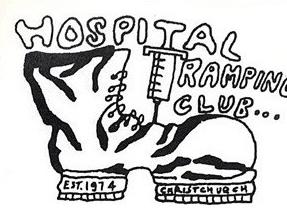
The club’s inaugural meeting was held in the Nurses’ Recreation Hall behind the Hagley Nurses Hostel on 29 April of that year. After that, the club’s meetings moved to the former St Andrew’s Outpatients, then later, into town. They are now held at Abberley Hall in St Albans.
Over the years the original club members have moved on to be replaced by others and then by 2006 the hospital link was lost as there were no longer any club members who worked at the hospital, says club member and Patient Information Officer Claire Thornton.
“So, in 2007 the club’s name changed to the Hagley Tramping Club to better reflect the current membership and promote the club as being open to all.
Around the same time, we updated the logo to reflect the new name and remove the syringe.”
Today the club runs weekend and Sunday trips with typical numbers around eight to 12.
“I’m pleased to be able to say that there are now a few hospital staff as current members. We organise a variety of trips to suit all ages and levels of fitness and younger family members are encouraged to join us on our easier trips.”
The club’s day trips are based within a couple of hours drive from Christchurch with overnight trips taking members further afield.


“We organise base camps, staying at campgrounds and holiday homes and have social events including dinners, games and activities,” Claire says.
The club is having its 50th anniversary celebrations on 20 April 2024 at the Harvard Community Lounge in Wigram. If this interests you or you are just thinking that tramping is your thing just take a look at the club’s website: www.hagleytrampingclub.net.nz

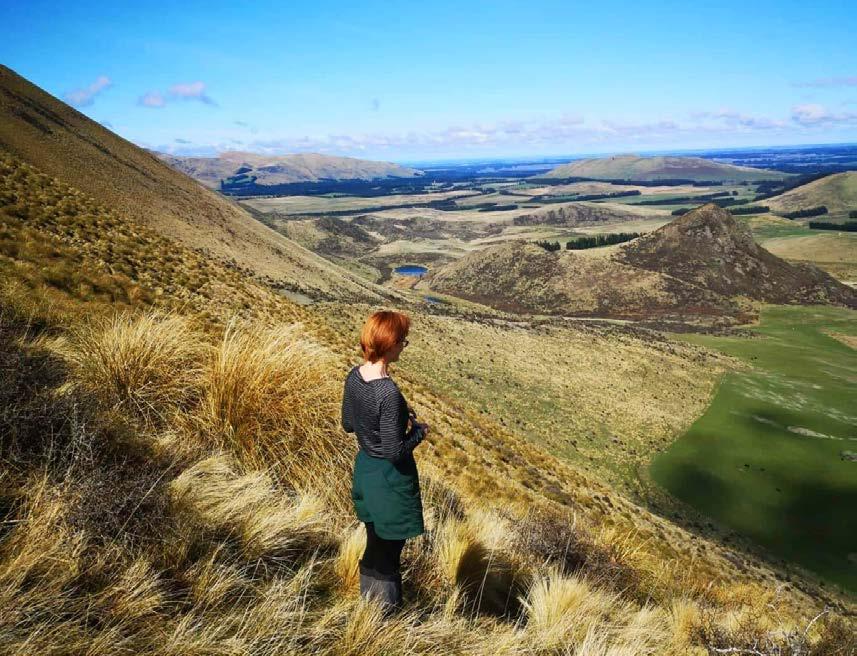
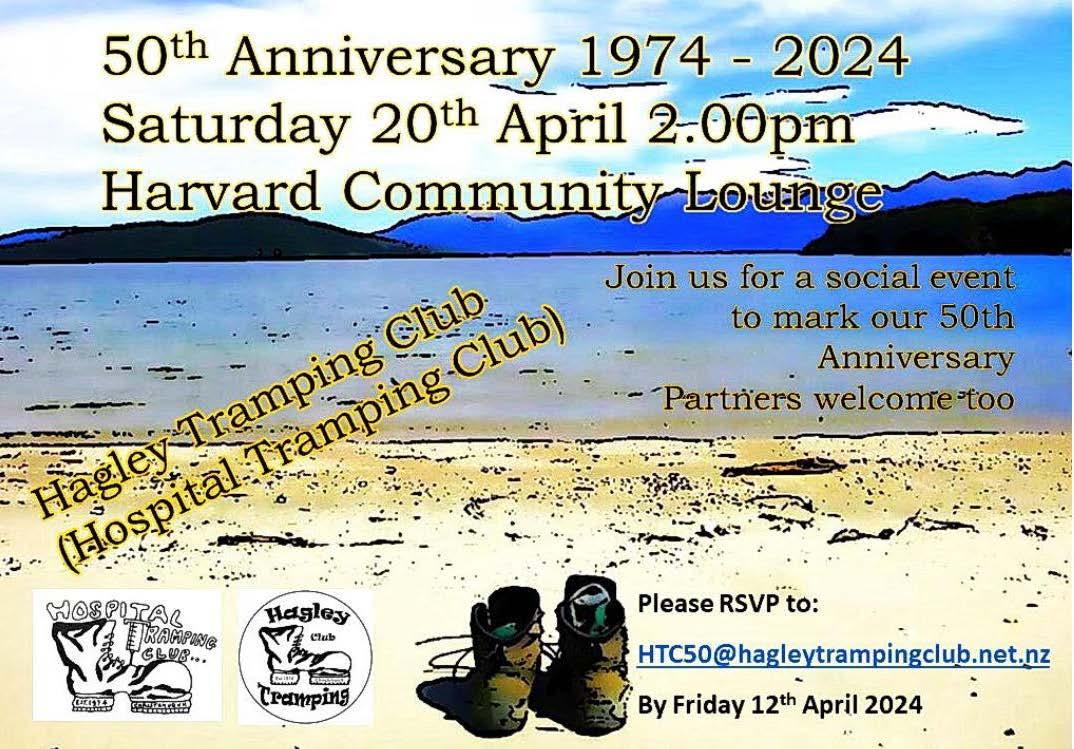

The following two articles were first printed in the CCN newsletter – its last as the organisation comes to an end.
Executive Director Jane Cartwright says even as they wrap up it’s important to recognise that some work continues while it waits for a new home, notably the Primary Care Taskforce.
The old adage – there’s no place like home – is a proverb the Integrated Respiratory team held close when working with the kaumātua | elders at Rehua Marae to design a modified Better Breathing pulmonary rehabilitation programme in August 2023.
Community Respiratory Physiotherapist Mersha Shepherd said the team knew it was important to build whanaungatanga | connection with the kaumātua to ensure they created a successful programme to be delivered at the Marae.
“This experience has taught me a lot about how to make that connection and how to do it well. Regardless of whether you’re Māori or non-Māori, people want to know that you care, and they want to be connected to you,” says Mersha.
Clinical Nurse Specialist Louise Weatherall said the team went in with an open mind about how the eight-week programme could be adapted so it met the wants and needs of kaumātua, rather than taking along preconceived ideas.
“As you get more involved in the process, you become more relaxed and the kaumātua pick up on that and relax with you,” says Louise.
Kaumātua Lorraine Warena said she found the sessions enjoyable because she is with other kaumātua and there’s a Māori presence in the room.
“It was fun to be a part of Mersha’s class and to be doing an activity with kaumātua that we are all enjoying as a rōpū | group,” says Lorraine.

“Mersha wasn’t just standing there doing some exercises and not engaging. She was very much engaged and had us moving. Even the kaumātua sitting in the chairs were moving and that is fantastic to see.”
Eighty year old kaumātua Frank Henare enjoyed the company and the surroundings.
“I loved the exercises. It meant a lot to me. It you want something different, if you want to get on in life, take it while you’ve got it,” says Frank.
“It takes a lot of tension out, especially if you had a hard day or night before. It’s one of the greatest things I’ve done since I left school.”
Whakapono (Lewis) Moke-Makatia enjoys that you meet people that you don’t know and that they just come together as one.
“It’s like just getting out of bed and feeling content,” says Whakapono.
The team have found there are no rules to how the sessions run and that each one turns out different.
Mersha admits this has been a challenging at times, because they come from an organised and structured progamme.
“We have to just go with the flow and it’s not a bad thing to learn how to do something different and to be led by what people’s needs are, rather than what you think their needs are,” says Mersha.
“If you look around the room, there’s lots of smiles and laughter.”
Louise says the kaumātua have been so welcoming and made it easy to come to this space as strangers – “we leave as friends”.

The team have appreciated the support of their own kaumātua Mac Renata, volunteer Tarihira and Rehua Marae nurse Linda Wood.
Watch a video featuring Mersha, Louise and some of the participants talking about their experience.
The Better Breathing programme is a free eight-week pulmonary rehabilitation programme available for people with long-term breathing conditions like Chronic Obstructive Pulmonary Disease (COPD). More information about the programme can be found here.
A kete | toolkit of resources designed to help practices integrate a practice pharmacist into their team has been launched by the Primary Care Taskforce.
This is the second kete produced in response to the results of a capacity and demand survey carried out in June, where some respondents highlighted the need to diversify primary care teams by bringing in additional healthcare staff such as clinical assistants, pharmacists, and nurse practitioners.
This team-orientated approach can help to reduce capacity pressures, improve patient care and contribute to workforce retention.
The kete includes details about what services pharmacist can provide to practices, along with benefits, considerations, employment models, templates and case study videos featuring GPs and pharmacists.
Chair of the PCTF, Dr Kim Burgess, says a team of motivated pharmacists and general practice team members worked together to develop the step-bystep guide to support the successful integration of pharmacists into practice teams.
“Pharmacists have a unique skill set that can be used to enhance patient care, while alleviating the strain on clinical staff,” says Kim.
“Traditionally pharmacists have been focused on medication delivery, but are now stepping into dynamic roles, handling everything from vaccinations, medicines reconciliations, polypharmacy oversight to directly supporting patients with chronic diseases.”
For a taste of what the kete offers view the videos below of Dr Jason Pryke from Riccarton Clinic and pharmacist Loren Vincent from Halswellhealth.
View the kete here and for further information contact your Primary Health Organisation, Canterbury Community Pharmacy Group or Linda Wensley from the Primary Care Taskforce.

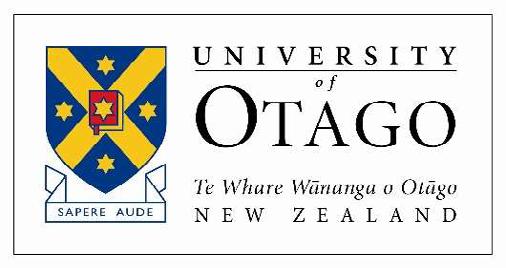
Date/Time: Tuesday, 25 June to Thursday, 27 June 2024
Start time: 8:30am-4:30pm
Participants must be able to attend all days in full and ensure travel arrangements don’t require late arrival or early departure.
Venue: University of Otago, Christchurch Simulation Centre Level 1, 72 Oxford Tce, Christchurch
Facilitators: An interprofessional team including UOC Simulation Centre staff and invited guests.
Open to: Health Professionals with an interest in simulation-based education, all disciplines. While those with no prior experience in simulation will be able to manage the course it is designed for individuals already working in simulation.
Cost: $1,900 + GST per person (catering included) 50% discount for University of Otago staff
Focus and format of the workshop: includes active participation and practise of all components of simulation-based education as well as presentations and discussions of both theory and practice.
educational underpinnings of simulation-based education
principles and practice of scenario writing
best practice in SBE including focus on safety
approaches to debriefing
orientation to the human simulators SimMan3G Plus / SimJunior and the simulation environment
developing and delivering/running a scenario
participating in scenarios
reviewing scenario development and delivery practice
debriefing a scenario
reviewing debriefing practice (debriefing the debrief)
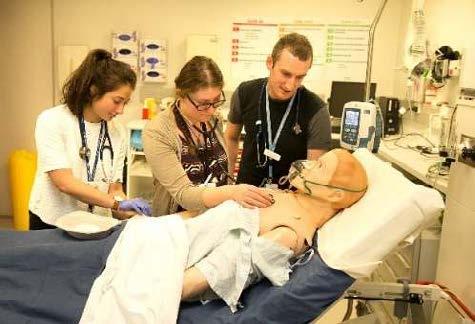
Numbers are limited to 20 participants. Places will be allocated on a ‘first–in’ basis and only confirmed once payment is received.
For more information - email simcentre.uoc@otago.ac.nz
This is an approved College of Intensive Care Medicine (CICM) CPD course.

When you work from home, your home becomes your workplace. The tools you use to do your work and the information you create, store and share with others need special care to keep it safe.
You may share your home workspace with people who wouldn’t typically inhabit your usual workspace.
They may be curious about your work, but keep specifics about patients, projects, finances, and business plans to yourself.
Respect the privacy of those you work with by having conversations in private places when possible. Keep it on the low that you’re working from home.
You could be targeted by cyber criminals if they know your location, especially from photos or comments on social media.
Keep your passwords safe and change the default password on your WiFi router and enable automatic updates on it.
Lock it all up! Lock your screen when you head to the loo or to grab a coffee, and lock your house if you can’t take your laptop with you.
Keeping your phone close does mean you won’t miss that all important message but most importantly, you’re less likely to leave it somewhere or have it stolen.
If that does happen, or a little accident occurs, advise the Service Desk immediately.
The small things do add to be cybersafe working at home.


